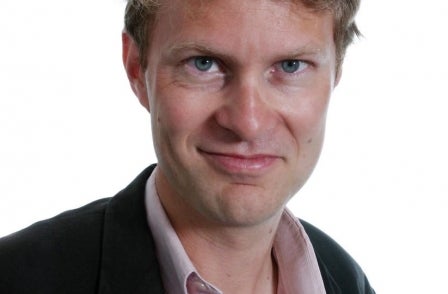
The future of investigative journalism is international alliances between media outlets which save money and resources for newspapers, according to one of the key Guardian journalists working on the Panama Papers.
Luke Harding, foreign correspondent for the Guardian, has been working on the Panama Papers for five months, holed up in the Guardian’s “secret cave” (where Guardian journalists previously worked on the Edward Snowden documents), before details of the huge data leak were published just days ago.
The Guardian worked on the Panama Papers as part of an international alliance of media outlets coordinated by the US-based International Consortium of Investigative Journalists (ICIJ).
Harding said: “I think it’s the way to go. There are diminishing resources [in newspapers] and investigative journalism is very expensive. The way to do it is through transnational alliances where you combine your resources with other peoples.
"Some of the journalists were brilliant data journalist, others journalists were very good at the financial nitty gritty. My job in a way was to write it and make it accessible for the lay reader.”
The Guardian has previously worked with international media partners on the Wikileaks, Edward Snowden and HSBC investigations.
But the size of the data involved in the Panama Papers, 11.5 million documents leaked from the offshore agent Mossack Fonseca, dwarves that which was involved in Wikileaks.
In total, some 400 journalists from 109 news organisations based in 80 countries have spent up to a year sifting through the data.
Harding, who penned Monday’s Guardian splash story on the revelations about how the rich and powerful use tax havens to hide their wealth, said: “I have been on the project for about five months. A couple of my colleagues have been doing it for longer. The German newspaper Suddeutsche Zeitung which got the stuff has been on it for a year.
“It’s just been an amazing collaboration across time zones and continents where having so many investigative journalists on a single story has had a kind of multiplying effect. We have been sharing tips, we have been sharing stuff we have found.”
Central to the smooth running of the investigation, said Harding, were two platforms.
There was a secure message board where journalists could communicate with each other and post information; and a searchable platform, codenamed “black light”, where the millions of leaked documents where uploaded to and could be searched through by journalists.
Harding said: “What’s been amazing about this leak, in contrast to previous leaks, is it has been uploaded in real time. We had an initial data set which was huge. And then it got bigger.
“Every few months another million documents or so would be uploaded. I have never been on a story before where the data set has been growing all the time. Also, some of the questions you couldn’t answer to begin you could answer later because you had more data.”
Encompassing so many media outlets over such a long period of time, Harding said he was surprised that details of the investigation did not leak out.
“To be honest I was quite surprised it didn’t leak. I mean there were so many people on this story, in so many different places. But it didn’t leak. We had a deadline in the UK which was 7pm on Sunday for publication. I am quite astonished we crossed the line holding hands but we did, “ he said.
The Guardian is expected to run with the story all week, with further revelations from the data to come.
Other Fleet Street tiles have followed up on the story.
The Times and the Daily Mail both splashed on how David Cameron has been dragged into the leak, after it was revealed his late father’s multimillion pound investment fund paid no British tax for 30 years.
Harding is annoyed that rival titles have not given any attribution to the Guardian as one of the sources of the original leak.
He said: “The [Daily] Mail has ripped off our coverage very energetically. They are past masters at gutting someone else's story and passing it off as their own in a matter of hours. You have to take your hat off to them.
"The Telegraph has done the same, attributing it to the ICIJ but without mentioning the Guardian and the BBC, which I think is a little ungentlemanly. It’s 2016 guys we are all trying to survive.”
Email pged@pressgazette.co.uk to point out mistakes, provide story tips or send in a letter for publication on our "Letters Page" blog
